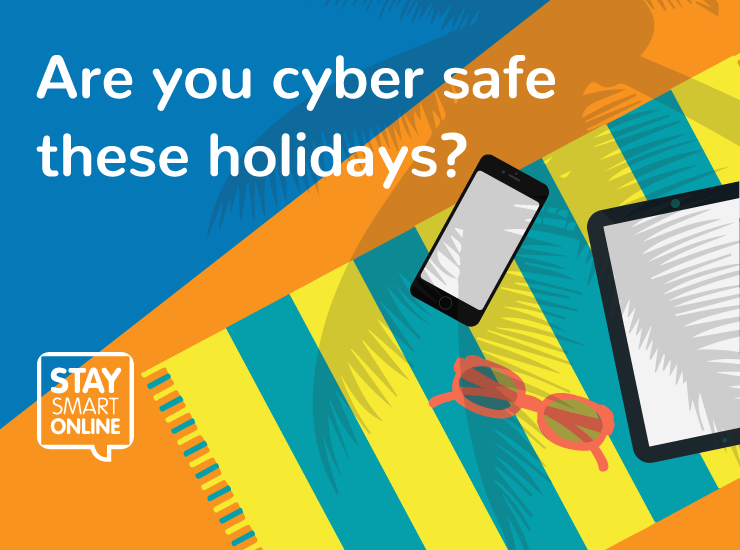The end of 2017 is near,
And CyberHound is here,
Wishing a Merry Christmas to you,
And a safe 2018 too!
As Christmas approaches, so does the anticipation of gifts under the tree and travels to places away far and away.
For cybercriminals, it’s also the season for exploitation. Scams soar at this time of year so it’s important to stay vigilant to protect devices and data.
Common Christmas scams include fake email gift certificates, e-cards and parcel delivery notifications requesting confirmation of delivery addresses or payment to collect or hold a parcel.
CyberHound, in partnership with the Australian Government’s Stay Smart Online initiative, is providing some timely Christmas cybersafety advice.
Chief Executive Officer John Fison said that the types of ‘gifts’ that cybercriminals love to give are ones that can leave a long lasting and damaging legacy.
“Cybercriminals use seemingly legitimate emails to convince you to download malicious software – malware, on your system,” Mr Fison said.
“Malware can lock up your computer and demand a ransom, steal your personal details and banking credentials, and manipulate and exploit your system over time.”
Mr Fison advised that you shouldn’t feel helpless or embarrassed if you’ve been hit by an online scam at Christmas time as you’re not the only one.
 …7,153 online scams were reported to Scamwatch…
…7,153 online scams were reported to Scamwatch…
In December 2016, 7,153 online scams were reported to the Australian Competition and Consumer Commission’s Scamwatch website, the highest number of online scams in a month that financial year.
In these scams, criminals used the internet, email, mobile apps, or social networking and online forums to siphon money from victims. Individuals lost $2.3 million to online scams last December and that increased to almost $3.2 million in the following month.
Those travelling are also reminded to be vigilant, with cybercriminals hunting for financial details, personal information and any means of financial gain. Travellers are also advised to limit what they post on social media so thieves aren’t aware your house is empty or to know exactly where you are.
CyberHound has provided the top five Stay Smart Online tips for Christmas cybersafety which include checking legitimacy of electronic gift cards, reconsider what is accessed on public Wi-Fi and protecting personal devices.
Consumers are also reminded to report scams to scamwatch.gov.au. This helps raise awareness of the scam so others do not fall victim. Cybercrime can be reported to the Australian Cybercrime Online Reporting Network (ACORN).
For more info on how CyberHound can help assist with your cybersecurity, click here.
Top five Christmas cybersafety tips:
- Check it twice – if you receive an e-card or electronic gift card, check the legitimacy with the gift giver prior to opening it. Be especially wary of .zip or .exe attachments or links.
- Don’t over share on social media – you don’t want thieves to know your house is empty or to know exactly where you are. Be very careful about sharing too much of your travels on social media. Instead, post about them once you’re home.
- Buyer beware – be extremely cautious in dealing with new or unknown retail websites, particularly if they’re advertising products and services at extremely low prices. These may be scam websites set up to steal your money or identity details.
- Use public Wi-Fi safely – avoid banking, online shopping or accessing sensitive accounts using public Wi-Fi networks. These public networks can be prime spots for phishing where a criminal steals sensitive information for malicious reasons.
- Protect your devices – if you’re taking any devices on holiday, make sure they are password protected, preferably with two-factor authentication. You can also enable location tracking in the event the device is lost or stolen. Remember to set up a screen lock on your device: this will ensure it auto-locks itself after a short period of inactivity. This is the easiest way to put off intruders.

